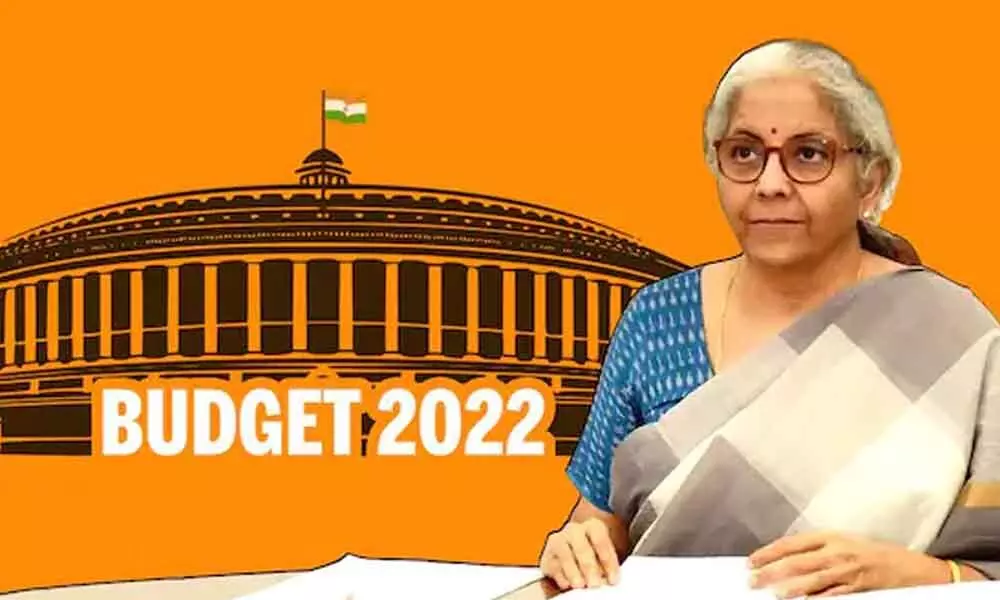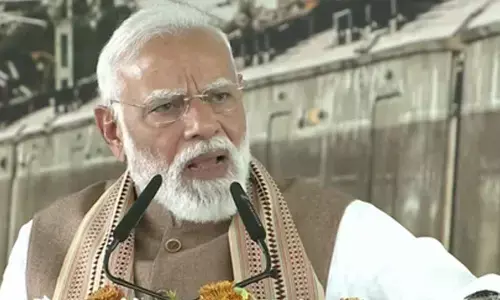Will it be a common man's budget?

Union Finance Minister Nirmala Sitharaman will be presenting her fourth budget on February
Union Finance Minister Nirmala Sitharaman will be presenting her fourth budget on February 1. The exercise is over. The budget speech is getting final touches. The FM will present her pre-budget Economic Survey on Monday in parliament ahead of the Union Budget.
The Economic Survey is the document that gives growth projection, policy prescriptions, where the government had failed during current fiscal etc. It also gives recommendations on what should be done during the next financial year. The Economic Survey 2021-22 projected a growth of 11 per cent but it is estimated that it may not be more than 9.2 per cent for the current fiscal.
The government would hide under the cover of Corona pandemic to explain why it could not achieve the projected 11 per cent growth despite RBI rolling out several measures to support the economy. But a look at the earlier GDP growth indicates that the Economic Survey 2018-19 had estimated the GDP growth for fiscal 2019-20 at 7 per cent. But it increased only by 4 per cent. Similarly, the Economic Survey 2017-18 had projected a growth rate of 7-7.5 for 2018-19, but the GDP expanded by only 6.5 per cent.
Well, all these statistics make sense for the economists, industry, trade and other sectors but what about the common man who has voted the BJP to power? Year after year, we have been seeing that the common man is left in lurch. His aspirations, the government claims to have met, but in real terms, he continues to be the worst sufferer. Let us take a simple example of health insurance. A majority of the hospitals refused to honour the insurance on one pretext or the other and neither the government nor the insurance companies could come to their rescue. In view of this, the citizens expect that the upcoming budget would address this issue. They also expect that the government may announce tax deduction for those who had to pay from their pocket for the Covid treatment.
The government always provides lip service, sympathises with the common man whose votes it needs most to come to power but finally gives peanuts to this section in the budget. If they get Re 1 benefit in some form or the other, they must pay at least Rs 10 extra from their pocket. Every year like Casablanca on the burning deck, the common man keeps expecting increase in annual tax deduction limit. It remains a distant dream. Similarly, the slogan for home for all remains a slogan as the government does not consider increasing tax deduction limit for repayment of home loan principal under Section 80c. Further, adjusting tax slabs with the increase in other deductions can help the salaried taxpayer, specifically the below Rs 50 lakh per annum bracket with more money in hand.
The question is: Will the government will consider reducing the highest tax slab rate from 30 per cent to 25 per cent, with a corresponding increase in the limit from Rs 10 lakh to Rs 20 lakh? Deduction under Section 80C of the Income Tax Act, 1961, provides for various types of payments made by taxpayers who are eligible for relief such as PPF, fixed deposits, housing loan repayment (principal portion), insurance, and expenditure made towards tuition fees. However, the limit under this section is quite low. Experts also recommend enhancement of exemption limit to Rs 3,00,000 from the current limit of Rs 1,50,000.
The common man also expects reduction in GST rates and steep fall in petrol and diesel prices. It is unfortunate that the Centre and the State governments refuse to reduce the VAT on these products when the prices shoot up. They only want to mop up and make good the loss in revenue generation which is more because of policy paralysis. Let us hope that Nirmala ji will be more benevolent towards the common man this time








